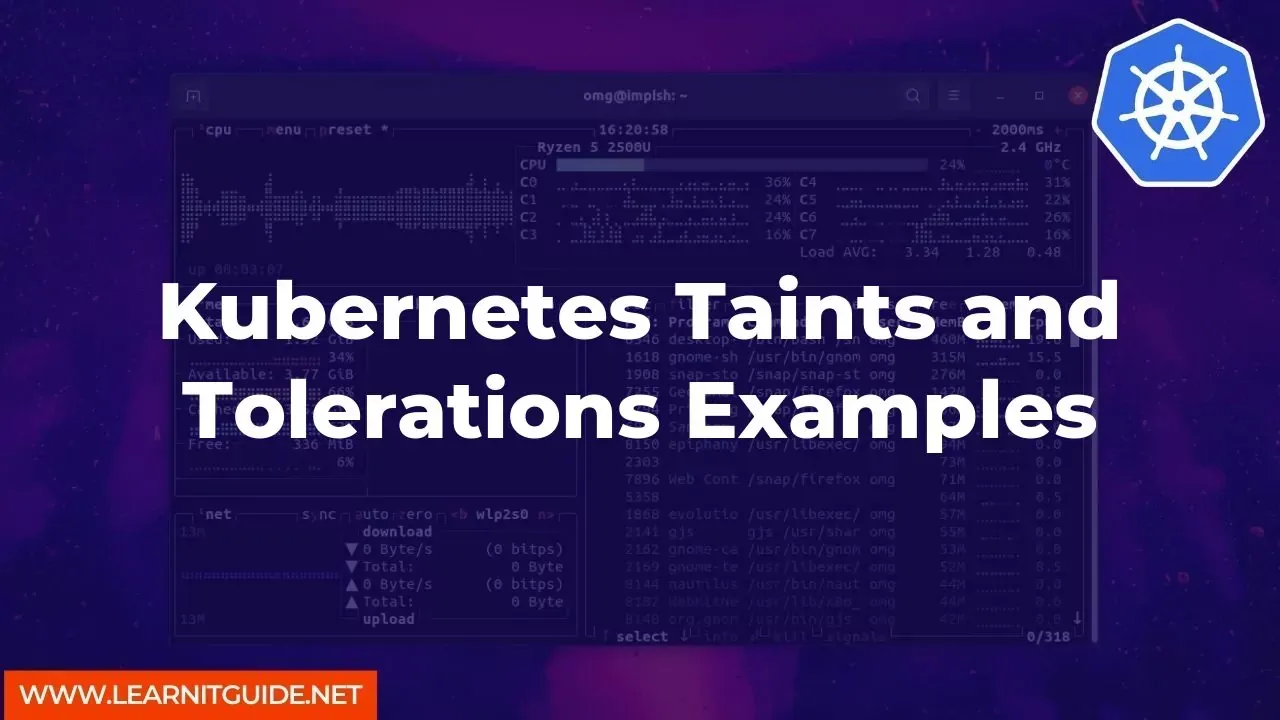Kubernetes is an open-source container orchestration system that automates the deployment, scaling, and management of containerized applications. It allows developers to focus on writing code, while Kubernetes handles the deployment and scaling of the application. One of the critical features of Kubernetes is taints and tolerations, which allows nodes to repel or attract pods based on certain conditions.
Taints and Tolerations in Kubernetes:
Taints and tolerations are used in Kubernetes to control which pods can be scheduled on which nodes. A taint is a property that can be set on a node that repels pods that do not have the corresponding toleration. A toleration is a property that can be set on a pod that allows it to tolerate a taint on a node. By using taints and tolerations, administrators can control which pods can be scheduled on which nodes, which is especially useful in multi-tenant clusters.Taints and Tolerations Examples:
Here are some examples of how taints and tolerations can be used in Kubernetes.Example 1: Tainting a Node
The following command taints a node with a key called "special" and a value of "true".
kubectl taint nodes node1 special=true:NoSchedule
This command will prevent any pod without the corresponding toleration from being scheduled on this node.
Example 2: Tolerating a Taint
The following YAML file defines a pod with a toleration for the "special" taint:
apiVersion: v1
kind: Pod
metadata:
name: mypod
spec:
containers:
- name: myapp
image: nginx
tolerations:
- key: "special"
operator: "Exists"
effect: "NoSchedule"
This pod will only be scheduled on a node that has the "special" taint.
Example 3: Tolerating Multiple Taints
The following YAML file defines a pod with tolerations for multiple taints:
apiVersion: v1
kind: Pod
metadata:
name: mypod
spec:
containers:
- name: myapp
image: nginx
tolerations:
- key: "special"
operator: "Exists"
effect: "NoSchedule"
- key: "environment"
operator: "Equal"
value: "prod"
effect: "NoSchedule"
This pod will only be scheduled on a node that has either the "special" or "environment=prod" taint.
Example 4: Removing a Taint
The following command removes the "special" taint from node1:
kubectl taint nodes node1 special:NoSchedule-
This command allows any pod to be scheduled on this node, regardless of whether it has a corresponding toleration.
Taints and tolerations are powerful tools for controlling which pods can be scheduled on which nodes in a Kubernetes cluster. By using taints and tolerations, administrators can ensure that pods are only deployed on nodes that meet certain conditions, which can be especially useful in multi-tenant environments. With the examples provided above, you can start using taints and tolerations in your own Kubernetes clusters.
Related Searches and Questions asked:
That's it for this post. Keep practicing and have fun. Leave your comments if any.








0 Comments